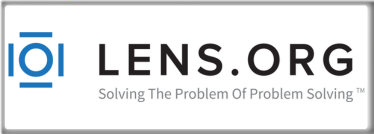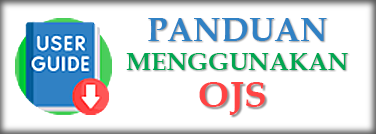PUBLICATION ETHICS OF JURNAL PERMUKIMAN
Jurnal Permukiman, P-ISSN 1907-4352, E-ISSN 2339-2975 is a peer- reviewed journal published by Direktorat Bina Teknik Permukiman dan Perumahan, Kementerian Pekerjaan Umum. this statement claritifies the ethical behavior of all parties involved in the act of posting an article in this journal, including authors, editors, reviewers, and publishers. This publication ethics is based on the Guidelines of the Committee on Publication Ethics (COPE).
Author Ethics
- Standards of writing: Authors must present their research papers and other important matters, as well as the results of discussions that are objective and accurate. The results of their research must be presented honestly, without imitation, falsification, or data manipulation. Scientific manuscripts must contain information and bibliographies that are detailed enough to provide space for other researchers to continue their research. Unclear or inaccurate reports are unethical and unacceptable behavior. Manuscripts must follow the provisions of journal writing.
- Originality and plagiarism: Authors must ensure that all their writings are entirely original. Authors should not submit a manuscript to more than one publication journal simultaneously unless approved by the editors. Previous similar works and publications, whether by other researchers or by the author himself, can be acknowledged by making them references. If there is primary literature used, it must be written using reference marks. If there is a statement taken directly from the results of other researchers' publications, it must be marked with quotation marks.
- Concurrent publication in other journals: Authors should not submit the same manuscript to two journals for concurrent publication. This is unethical and unacceptable. Publications arising from a research must be properly identified and the publication must be cited..
- Acknowledgement of sources used: Authors should acknowledge all sources of data used in the research and cite publications that have been influential in determining the nature of the research. Authors should always give proper acknowledgement to the work of others.
- Ownership of the paper: Copyright for published research results must accurately show the contributions of each individual involved in preparing the paper and its report. The copyright is limited only to researchers who make significant contributions, especially to the concept, design, and interpretation of the study presented. Other researchers who have made similar contributions should be listed as the second, third, and so on authors. If the dominant contributor is the first author, other contributors can also be listed in the acknowledgments sub-chapter. The author must ensure that all contributors have seen and approved the results of the paper to be published and their involvement as second, third, and so on authors.
- Disclosure and conflicts of interest: All authors must disclose in their manuscript any financial or other potential conflicts of interest that might influence the interpretation of their manuscript. All sources of financial support for any project must be disclosed.
- Errors in published manuscripts: If the author finds errors in the submitted manuscript, the author should pay attention to the suggestions and input from the journal reviewers and work together to improve the paper.
- Hazards, humans, and animation: Authors must be able to clearly identify the hazards contained in their written manuscript, such as the chemicals, procedures, and equipment used.
Editor Ethics
- Publication decision: Based on the results of the review of the manuscript by reviewers (board members and peer reviewers), the Editor can accept, reject, or request changes to the manuscript of the scientific paper. The review of the manuscript and its importance to the authors and readers must form the basis of this decision. Reviewers are guided by the policies of the journal's management and constrained by such legal requirements as shall then be in force regarding libel, copyright infringement and plagiarism. Reviewers may confer with other reviewers or reviewers in making this decision. Reviewers must be responsible for fulfilling all matters relating to publication requirements and must have procedures and policies in place to ensure the quality of the published substance and maintain the integrity of the published work.
- Manuscript review: The editor must ensure that each manuscript is first evaluated by the editor for its originality. The editor should organize and use peer reviewers who have adequate capacity and are wise. In addition, he/she should also explain the peer review process in communicating information to authors and also indicate which parts of the journal are reviewed. The editor should also use appropriate peer reviewers for papers that are worthy of publication by selecting people who have sufficient competence and avoid conflicts of interest.
- Principle of fairness: The editor must ensure that each manuscript received by the journal's editorial board is reviewed for intellectual content without regard to gender, race, religion, citizenship, etc. of the authors. An essential part of his or her responsibility is to make fair decisions and uphold the principle of editorial independence and integrity. Editors are in a powerful position by making decisions about publishing, which makes it extremely important that this process is as fair and objective as possible.
- Confidentiality: Editors must ensure that information regarding manuscripts submitted by authors is kept confidential. Editors should critically assess any potential breaches of data protection and author confidentiality, including using appropriate information regarding the research presented and the research's applicability and publication.
- Disclosure and conflicts of interest: Journal editors will not use unpublished materials disclosed in a submitted manuscript for their own research without the express written consent of the author. Editors should not be involved in decisions about which papers have conflicts of interest.
Reviewer Ethics
- Confidentiality: Information regarding manuscripts submitted by authors must be kept confidential and treated as confidential information. They must not be shown to or discussed with others except as authorized by the editor.
- Acknowledgement of sources: Reviewers should ensure that authors have acknowledged all sources of data used in the paper. Reviewers should also identify relevant published work that has not been cited by the authors. Any statement that an observation, derivation, or opinion had been previously reported should be accompanied by the relevant citation. Reviewers should notify the journal's editorial board immediately if they notice any irregularities, such as ethical aspects of the work, are aware of substantial similarity between the manuscript they are reviewing and a manuscript submitted to the journal or a published article of which they have personal knowledge, or suspect that such may have occurred during either the research or the writing and submission of the manuscript; reviewers should, however, maintain confidentiality and not investigate further unless the journal's editorial board requests further information or advice.
- Objectivity standards: Reviews of submitted manuscripts must be conducted objectively and reviewers should express their views with clear and supporting arguments. Reviewers should be constructive in their reviews and provide feedback that will help the author to improve the quality of the author's manuscript, provide suggestions and input that can support the statements written in the author's manuscript.
- Disclosure and conflicts of interest: Privileged information or ideas obtained through peer review must be kept confidential and not used for personal advantage. Reviewers should not consider manuscripts in which they have conflicts of interest resulting from competitive, collaborative, or other relationships or connections with any of the authors, companies, or institutions connected to the papers. If two views are inconclusive, the reviewer should suspect the identity of the author by notifying the editorial board of the potential conflict of interest.
- Punctuality: Reviewers must work within an agreed time frame. Reviewers only agree to review a manuscript if they are confident that they can deliver their review within the agreed time. Reviewers must inform the journal board immediately if they require an extension of time to review the manuscript.
















